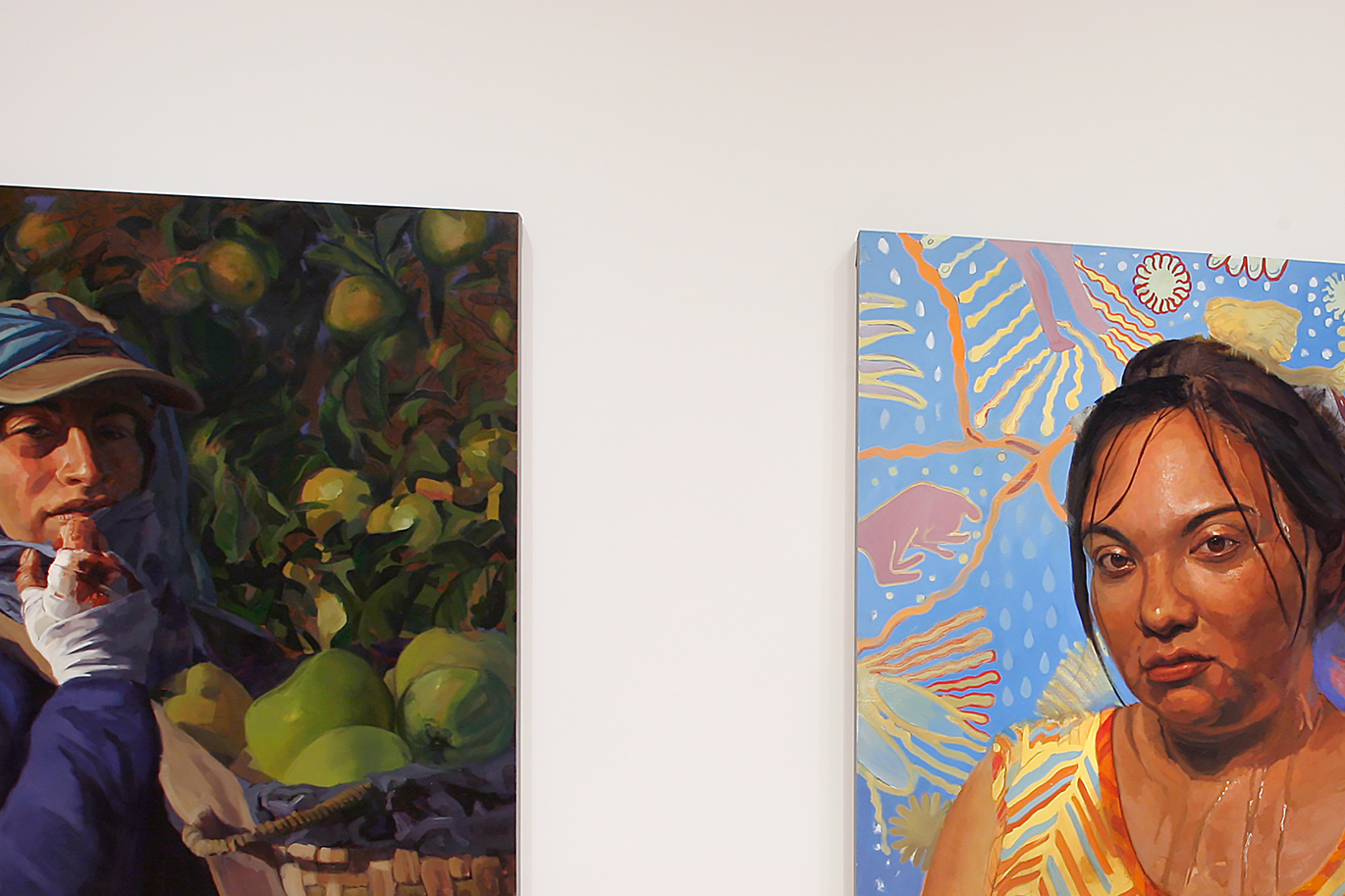- Winter 2020
Syllabus Description:
ART 494: Senior Thesis Seminar in Painting and Drawing
Prof. David Brody
Winter, 2020: M/W 2:30-5:20
email: brody@uw.edu
COURSE CONTENT
The goal of this course is to help advanced painting majors:
- clarify and develop their individual visions
- profitably engage in independent studio practice and research
- better their abilities to communicate with others about their creative work
The two primary questions which will be addressed are:
What are you painting and drawing?
How are you painting and drawing this?
Students propose and develop their own individual projects and research with the goal of producing an original and ambitious body of work. In addition, problems may be assigned to aid students in developing their vision and further explore possibilities relevant to their work. Attention will be paid to formal language (e.g. composition, value, color, space, etc.) and how this relates to broader goals in painting and drawing. Classroom sessions will be devoted to studio work, looking at artists’ work, discussions, and both individual and group critiques.
It is expected that students work in their studios outside of class time. When there is no specific homework the ongoing assignment is work on continuing independent projects. At a minimum, students should allow 10 hours each week for their studio work beyond class time. Investing double that amount of time will have very positive effects on the development of individual projects. All work should be retained and kept in good order. There will be individual critiques at the end of the term when the quarter’s work will be reviewed.
This is a 400 level course with grades based primarily on the quality of work produced. Quantity of work should reflect the advanced level and time invested. Generally this would mean four to five ambitious works with attendant sketches, studies, etc. Inventiveness, degree of improvement, ability to synthesize new ideas and concepts, preparedness, and class participation are also weighed.
Class participation is an integral part of art classes. Since absences from class prevent participation, they may negatively affect grades. Further, it is extremely difficult in studio classes to make-up work successfully. Students who miss class put themselves at a distinct disadvantage and so are strongly urged to attend every session. In the event of absence or lateness students are responsible for making up all work and for informing themselves about assignments given and materials needed for future classes.
Office hours are by appointment. The final for this course will be held on Tuesday, March 17 from 2:30-4:20.
INDIVIDUAL STUDIOS - ROOM 310
Undergraduate studios are assigned on a quarterly basis, for one quarter only, by the faculty member or members teaching Senior Thesis Seminar in Painting and Drawing, Art 494. Priority is given to students enrolled in a section of Art 494. Studios are assigned on the first day of that class’ meeting. Remaining studios, if any, will be assigned to students enrolled in independent study in painting, by the faculty member or members teaching Art 494 that quarter. These will generally be assigned during the second week of the quarter.
Studio spaces are configured to assure students as equal an amount of space as possible. Studio partitions are not to be moved nor are extra walls to be added. Because of fire regulations corridors must be left clear. Nothing is to be stored in the corridors. Between quarters there will be a clean-up of the studios. Anything left in corridors will be thrown away. Due to fire regulations curtains are not allowed on individual studios and the use of space heaters is prohibited.
PAINTING AND DRAWING PROGRAM STUDIOS
All studios are meant to be quiet spaces. Use of radios, stereos, televisions and other similar equipment is only allowed with the use of headphones. Students who routinely disturb other students and interfere with their work may be prohibited from working in Painting and Drawing Program studios.
STUDENTS WITH DISABILITIES
If you would like to request academic accommodations due to a disability, please contact Disabled Student Services, 448 Schmitz, (206) 543-8924 (V/TTY). If you have a letter from Disabled Student Services indicating you have a disability that requires academic accommodation, please present the letter to me so we can discuss the accommodations you might need.
SAFETY - UW SafeCampus
Preventing violence is everyone's responsibility. If you're concerned, tell someone. Always call 911 if you or others may be in danger. Call 206-685-SAFE (7233) to report non-urgent threats of violenceand for referrals to UW counseling and/or safety resources. TTY or VP callers, please call through your preferred relay service. Don't walk alone. Campus safety guards can walk with you on campus after dark. Call Husky NightWalk 206-685-WALK (9255). Stay connected in an emergency with UW Alert. Register your mobile number to receive instant notification of campus emergencies via text and voice messaging. Sign up online at www.washington.edu/alert <http://www.washington.edu/alert>. For more information visit the SafeCampus website at www.washington.edu/safecampus <http://www. washington .edu/safecampus*> .
Equal Opportunity
The School of Art reaffirms its policy of equal opportunity regardless of race, color, creed, religion, national origin, gender, sexual orientation, age, marital status, disability, or status as a disabled veteran or Vietnam-era veteran in accordance with UW policy and applicable federal and state statutes and regulations.
Plagiarism
Plagiarism is defined as using in your own work the creations, ideas, words, inventions, or work of someone else without formally acknowledging them through the use of quotation marks, footnotes, bibliography, or other reference. Please check with your instructor if you have questions about what constitutes plagiarism. Instances of plagiarism will be referred to the Vice Provost/Special Asst to the President for Student Relations and may lead to disciplinary action.



